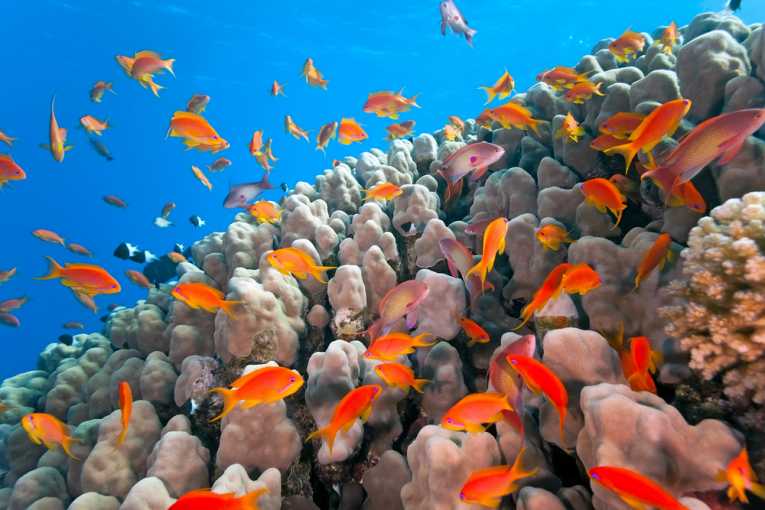Having grown up in a Caribbean island, I know from experience that coral reefs are beautiful - an awesome marine ecosystem, the perfect place to dive and have a lot of fun, and a source of material for lovely jewelry. But there is much more to them than just good looks or economic potential. Coral reefs in the Indian, Pacific and Caribbean oceans are also host to an amazing array of marine life - and we don't even know just how much.
A recently published study from the Smithsonian, using new and effective techniques such as DNA barcoding, discovered a larger variety of crustacean species in coral reefs than anyone had ever anticipated. And these were just the crabs, in a narrow habitat range - since only the dead reefs were targeted, and not even all of them.
In addition to crustaceans, a dead coral reef houses algae, sponges, mollusks, worms, and many other marine organisms too small to be seen to the naked eye, not to mention the fish and the marine mammals who also like to hang around these places. Presumably, living coral reefs are even more active.
Currently, biological diversity in the world's coral reefs has been estimated to be no less than half a million species, and perhaps more than nine million. It's very likely that further research will show we have seriously underestimated coral reef diversity. Unfortunately, we might never know.
Coral reefs are one of the most endangered ecosystems in the planet, and so far we've had little success to stop their decline. Corals are dying rapidly, sometimes because of spreading disease and global warming, sometimes because of human actions that lead to pollution and destruction of reefs.
Even more sad than just the loss of the beautiful corals, their disappearance also means countless other marine organisms will greatly suffer - in many cases even go extinct themselves. The loss of coral reef habitat would go a long way toward making our oceans an empty, desolate place.
Humans must act quickly to understand and prevent the mortality of coral reefs. The question is, do we even have the will?










